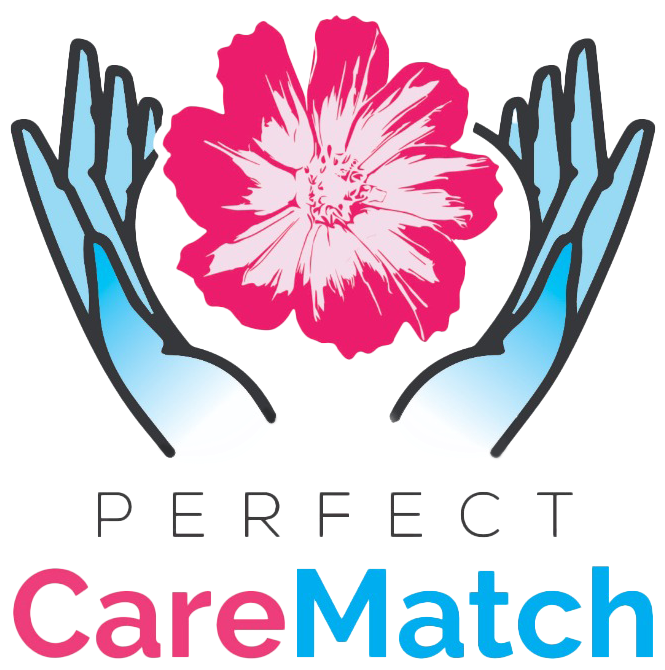Have Fun & Be Healthy
Embrace the power of proper nourishment to provide the building blocks you need to be healthy, vibrant, and on the path to successful living
Practicing self-care is vital for everyone and essential for caregivers to be at their best and provide the best care to others. One of the most impactful things you can do to be healthy is nourishing your body. Wholesome and nutritious foods fuel you physically, support your mental and emotional well-being, and are a critical element of holistic care.
A balanced diet provides the necessary nutrients and energy to support your health and well-being: mind, body, and spirit. Eating a balanced diet rich in fruits, vegetables, whole grains, lean proteins, and healthy fats is essential for nourishing and providing the body with what it needs to function optimally. By fueling our bodies with nutrient-dense foods, we can support our immune system, boost energy levels, improve mood, and enhance cognitive function.
Where to Start?
Has improving your diet and enhancing your nutritional intake been on your to-do list, but you feel a bit overwhelmed with how to begin—and be successful in taking the next steps of your healthier eating journey? Set yourself up for success with easy-to-implement yet impactful measures to nourish your body and support better health.
First, know that incorporating healthy eating habits into your daily routine can be easy and fun! Adopting some regular practices can significantly impact your health and, very importantly, help prevent chronic diseases such as heart disease, diabetes, and obesity. Proper nutrition is critically important for people of all ages. As individuals age, ensuring healthy nourishment becomes increasingly vital for overall health and well-being.
Some simple steps, such as choosing whole foods over processed ones, limiting sugar and salt intake, and staying hydrated, can have significant impacts, such as reducing inflammation in the body and generally supporting overall health and well-being.
Ensure you eat a healthy and balanced diet with adequate nutrition daily. Follow these easy-to-adopt tips:
- Embrace a world of flavors, colors, and nutrients by including a diverse array of fruits and vegetables in your meals. Doing this ensures you get a wide range of vitamins and minerals and keeps your palate excited and your meals interesting.
- Incorporate whole grains, such as brown rice, quinoa, and whole wheat bread, into your diet for fiber and essential nutrients.
- Empower your body’s natural repair system by choosing lean protein sources, such as poultry, fish, beans, and legumes. These are packed with nutrients and support muscle growth and repair.
- Limit your intake of processed foods, sugary drinks, and high-fat snacks to reduce the consumption of empty calories, which are calories that provide little to no nutritional value and can negatively impact your health.
- Monitor and reduce carbohydrate intake! While many know the importance of limiting sugar intake, not everyone may realize how vital monitoring carbohydrate intake is regarding overall sugar consumption. Carbohydrates break down into complex sugars through a process called hydrolysis. In this process, enzymes in the digestive system break down the bonds between the individual sugar molecules in carbohydrates, such as starch or glycogen, into simpler sugars like glucose. This breakdown allows the body to absorb and utilize the sugars for energy production and other metabolic processes. It is essential to monitor and limit the intake of carbohydrates that break down into sugars because excessive consumption of these sugars can lead to various health issues. High intake of simple sugars can cause rapid spikes in blood sugar levels, leading to insulin resistance, weight gain, and an increased risk of developing chronic conditions such as type 2 diabetes, heart disease, and obesity. Monitoring and limiting the carbohydrate intake that breaks down into sugars can help maintain stable blood sugar levels, promote overall health, and reduce the risk of these health complications.
- Drink plenty of water throughout the day to stay refreshed and energized. This simple practice supports digestion and overall health and keeps you energized and alert.
- Monitor your portion sizes to avoid overeating and maintain a healthy weight.
- Take a cooking class or take advantage of the many healthy cooking resources available, such as magazines, social media channels, and online recipes!
- Make a point to try new tastes, healthy food items, and recipes to diversify your nutritional intake.
By following these tips and making mindful choices in your daily diet, you can ensure that you and those you care for are getting the necessary nutrients for optimal health and well-being.
Remember, every small change you make can lead to a healthier, happier you!
PCMatch is dedicated to holistically supporting the health of seniors and caregivers. Visit our Holistic Health Hub at www.perfectcarematch.com/wellness-coaching/ to access PCMatch’s expert self-care resources and the company’s free online virtual workshops. Topics include improving family health through Holistic Wellness Practices, approaches to Self-Care, Improved Nutrition, and Stress/Anxiety Management.
References:
The Role of Nutrition in Achieving Your Fitness Goals – Press Wire Hub. https://presswirehub.com/the-role-of-nutrition-in-achieving-your-fitness-goals/
Nourishing Wisdom: The Crucial Role of Proper Nutrition for Elders – Care And Love. https://www.careandloveblogs.com/nourishing-wisdom-the-crucial-role-of-proper-nutrition-for-elders/
External Resources:

